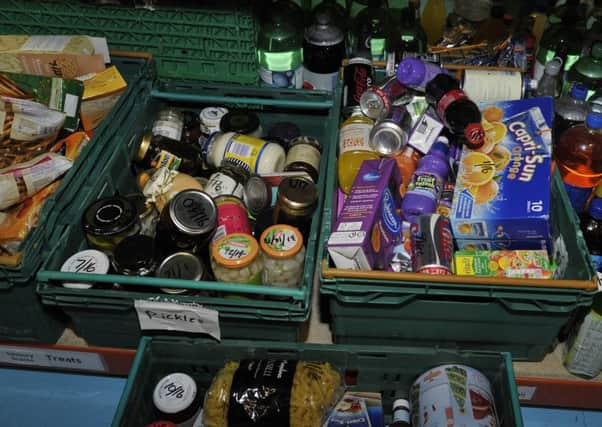Mark Bevan: Food can fuel future for those most in need


Food as fuel for work is not a new concept for any adults who remember the Go To Work on an Egg campaign of the 1960s. When a revival was mooted more recently, however, it was stopped due its lack of nutritional balance going against the grain of modern dietary advice. Adults can make their own educated decisions about what to eat to sustain their minds and bodies for the mental and physical demands of the 9-5, but what about our children?
The relationship between the poverty, nutrition, education and employment prospects of our children is so intrinsically linked that in Scotland we can no longer afford to ignore the need to tackle the issue with a cross-sector children’s food policy fit for the 21st century.
Advertisement
Hide AdAdvertisement
Hide AdThere are more than 220,000 children living in relative poverty in Scotland, where producing three regular healthy meals a day is a serious challenge. That’s more than eight children in a classroom of 30 who could be coming into school having had no breakfast and leaving with no guarantee of an evening meal.
A boy born in the most deprived 10 per cent of areas has a life expectancy of 68 – about seven years below the national average and around 14 years below boys born in the least deprived areas*. And its getting worse. The Institute for Fiscal Studies has shown that by 2020 there will be 100,000 more children living in poverty than in 2012.
Business in the Community Scotland is part of the Prince’s responsible business network of global, national and local businesses who act to build a fairer society and more sustainable future. In late 2015 we announced our partnership with the national charity Children in Scotland and the school food supplier Brakes to develop a Food, Families, Futures programme to tackle child hunger during weekends and school holidays. The programme will be piloted in Ibrox and Irvine and is designed in recognition that children who receive free school meals do not get those meals at weekends or during school holidays when pressure can high on family finances. Since that time we have been fortunate to receive further finding from People’s Postcode Lottery.
We know that children growing up in poverty start school up to 13 months behind their peers in key developmental milestones. For low-income families, skills regress much more during holidays than for those from wealthier families, this coincides directly with peak demand from food banks. These are the children most likely to develop type 2 diabetes, to smoke, to be obese, and they are the children least likely to succeed at school.
Over the next 25 years there will be a barely perceptible growth of 1 per cent in the working age population. At the same time there will be an 85 per cent increase in those aged 75. With the economy at near full employment and businesses wanting to grow, there are three connected issues. Where will the 2040 workforce come from, who will care for those aged 75+ and how will we be able to afford the future cost of social care and pension provision?
We need to act now to ensure that those 220,000 children today are not lost to the pool of talent – for all of our futures we cannot afford to fail 220,000 children for want of a decent meal at the weekend and during school holidays.
More effective foodbanks are not the long-term answer and should not be the ambition, we need a different approach and that is why Business in the Community Scotland is supporting the national charity Children in Scotland by gathering business leaders together to address the issue of child food poverty in the Food, Families, Futures programme. We need to support the creation of a national children’s food policy so that sustainable, cost effective and appealing food for children in Scotland is an achievable goal. It is a moral and economic necessity and we must act now.
• Mark Bevan is deputy managing director of Business in the Community Scotland
*Monitoring Poverty and Social Inclusion in Scotland, JRF 2013.